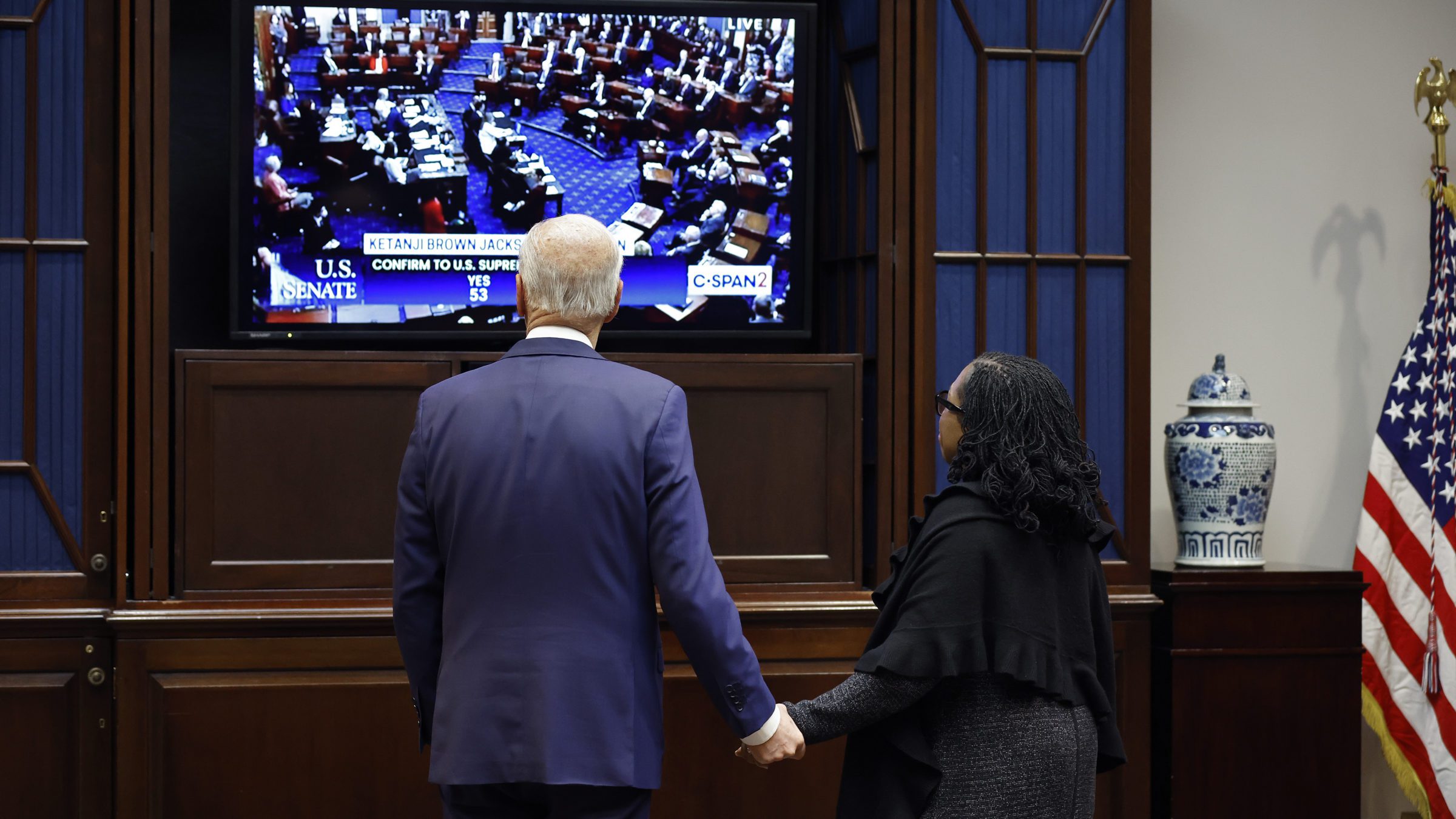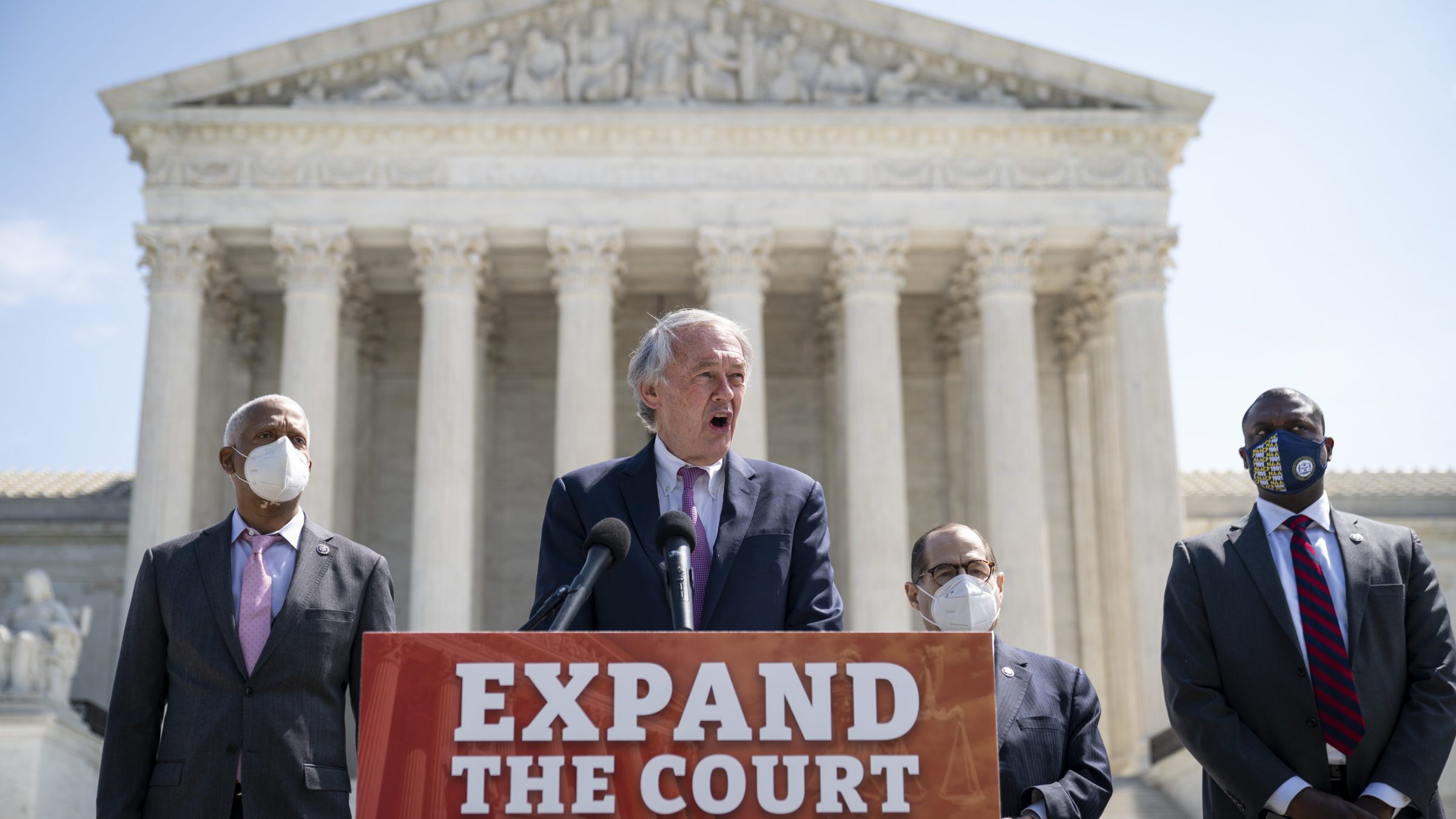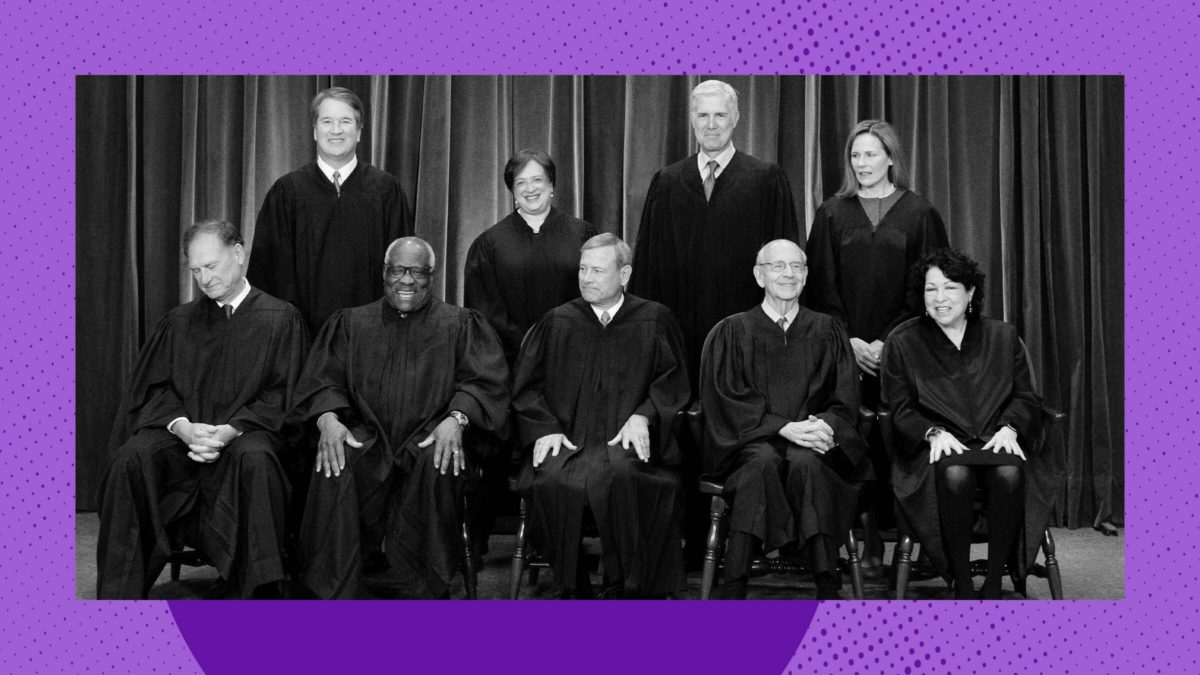As the first Black woman to serve on the Supreme Court, Justice Ketanji Brown Jackson will speak with a voice our law has never truly heard. But for as long as the Court is controlled by six far-right radicals, Justice Jackson will too often speak in dissent. To realize her historic potential, Democrats must expand the Court—giving her four new colleagues who will vote to preserve fundamental rights and work to restore integrity to a failing institution.
The triumph of Justice Jackson’s confirmation cannot be overstated. Her confirmation to the Court breaks a barrier as old as our nation, and helps build a legal system whose decision-makers reflect the people their decisions most affect. President Joe Biden’s nominees to other seats in the federal judiciary have driven this shift: For the first time in history, a majority of a president’s confirmed nominees are women of color.
As a former public defender, Justice Jackson brings another badly-needed perspective to the Court: although several former prosecutors currently serve as justices, no former public defender has ever done so. As the Court’s far-right supermajority works to unravel the fundamental rights of the marginalized communities Justice Jackson has served, she will be a powerful champion for justice, equality, and the rule of law.
Alone, however, Justice Jackson cannot reverse the dangerous course of this Court. Because she replaces Justice Stephen Breyer, a moderate liberal, her confirmation leaves the far-right, six-conservative bloc undisturbed. As vital as her voice is, in the cases that matter most for the American people, her colleagues will have the votes to ignore it.

(Photo by Chip Somodevilla/Getty Images)
And the Republican-appointed justices have provided every indication that they will do exactly that. Time and again, they have revealed their hostility to democracy itself, particularly to the voting rights of people of color. They have demolished the Voting Rights Act by striking down the preclearance requirement in Shelby County v. Holder, eviscerating the ban on racist voter suppression in Brnovich v. DNC, and denying equal representation to Black communities in recent cases like Merrill v. Milligan and Wisconsin Legislature v. Wisconsin Election Commission. As Republican politicians at the state and federal levels distort democracy beyond all recognition to entrench their own power, their allies on the Court have been there for them every step of the way.
The Court won’t stop there, either. In this term and the next, the justices have their sights set on reproductive rights, LGBTQ+ rights, gun safety, affirmative action, and the EPA’s authority to confront the worsening climate crisis.
Justice Jackson faces a dynamic familiar to Black Americans across this country. She enters an institution that empowers a right-wing minority to rule as if it were a political majority. She is called to vote on matters that, thanks to Republican chicanery, have been rigged against her and the majority of Americans. She is unfairly expected to transform a broken institution without the support—or the power—required for the task. And while her colleagues condemn Black people to unspeakable legal violence at a vast scale, she will be limited to issuing powerful dissents that emanate from her intimate knowledge of the real stakes of injustice. Unless and until Justice Jackson and her liberal colleagues get some help, the Court’s assault on democracy and fundamental freedoms will only get worse.
To build a judiciary and a democracy that work for everyone, expanding the Supreme Court is the only realistic long-term solution.
Thankfully, we in Congress are not powerless to stop these attacks. As Republican senators acknowledged throughout Justice Jackson’s confirmation hearings, the Constitution gives Congress the power to change the size of the Court. In fact, Congress has used that power seven times throughout the nation’s history. To build a judiciary and a democracy that work for everyone, expanding the Court is the only realistic long-term solution.
It is no wonder, then, that Republicans frantically tried to turn the hearings about Justice Jackson into hearings about expanding the Court. It is no accident that Senate Minority Leader Mitch McConnell’s “first and foremost” concern about Justice Jackson was his concern about Court expansion. It is no coincidence that North Carolina Senator Thom Tillis railed against expanding the Court in the same breath that he warned against abolishing the filibuster. And it is no mistake that Utah Senator Mike Lee openly acknowledged that expanding the Court could “change its rulings [on] that portion of the court’s docket that tends to be more politically contentious.” Republicans know that maintaining their power depends on disempowering the American people.
As the party of a dwindling and increasingly radicalized minority, Republicans cannot control the country unless they control the Court. They fear Court expansion will require them to face the judgment of the American people in elections that are truly free, fair, and inclusive. And they fear that when that day comes, they will lose for generations the power they corrupted the federal judiciary to seize.

Rep. Hank Johnson (D-GA), Sen. Ed Markey (D-MA), House Judiciary Committee Chairman Rep. Jerrold Nadler (D-NY), and the author announce legislation to expand the number of seats on the Supreme Court (Photo by Drew Angerer/Getty Images)
That is why, last year, alongside Senator Ed Markey and Reps. Hank Johnson and Jerry Nadler, I introduced the Judiciary Act—legislation to restore integrity and balance to the Supreme Court by expanding it to 13 justices. Since then, 50 of our colleagues have signed on as co-sponsors.
The American people agree that it’s time to expand the Court. Last year, after the Court allowed Texas to effectively end the right to an abortion in the state, 56 percent of voters—including 90 percent of Democrats—recognized that the decision made Court expansion urgent. And in 2020, after Republicans rammed the confirmation of Justice Amy Coney Barrett through the Senate weeks before the president who nominated her lost his reelection bid, a majority of registered voters backed adding seats to the Court. People understand better than ever the stakes of this fight: If this 6-3, hyper-partisan majority continues unraveling democracy and stripping away fundamental rights, future justices will no longer have anything to protect.
A justice like Ketanji Brown Jackson deserves to be in the majority, and she needs Congress to complete this project. We must send her four new colleagues now—before it’s too late.

